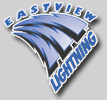



| Quick Links | ||
|
-Course Syllabus for Modern World |
| People | ||
|
-Administration -Alumni -Community -Department Leaders -Parent Connections -Staff Pages -Volunteer Calendar |
| Syllabus | |||
|
U.S. History Fall 2008-2009 Mr. Maupin-Room A206 jean.baker@district196.org roger.maupin@district196.org course syllabus, Policies and Expectations
History is the witness that testifies to the passing of time; it illuminates reality, vitalizes memory, provides guidance in daily life and brings us tidings of antiquity -- cicero
Course outline: Welcome to United States History. This course is designed to help you understand how people from the past have grappled with a variety of fundamental issues such as truth, justice and personal responsibility. You will embark on a journey back in time in which you will discover that our nation was built by both ordinary and extraordinary people united by a quest for liberty, freedom, opportunity and the pursuit of happiness.
Course outline: Unit One: U.S. History to 1850 Unit Two: The Union in Crisis Unit Three: An Industrial Nation Unit Four: Becoming a World Power
required materials:
Expectations: It is expected that you come to class on time, prepared, and with all of the required course materials.
respect: Respect for all individuals is crucial to your success and the success of this class. It is expected that EVERYONE show respect towards one and another at all times. Lack of respect will NOTbe tolerated. This includes respect for individuals, peers, teachers, administrators, guests, as well as materials (classroom, desks, tables, walls, books, surrounding areas, floors, bulletin boards, computer, etc).
participation: All students will be expected to actively participate in all activities. Active listening and viewing (as opposed to passive) are important when watching videos, presentations and speakers. There is absolutely no sleeping, heads on desks, etc. Come to class awake, alert and ready to learn! Your participation depends on your preparedness for class. In other words, BE PREPARED TO PARTICIPATE!
attendance/tardies: Attendance is vital to your success in this class. Students are expected to be in their seat when the bell rings. Failure to meet this requirement will result in a tardy. On the 3 rd tardy you will be referred directly to detention. BE ON TIME AND PREPARED FOR CLASS! If absent or tardy you must present an admit at the beginning of class.
If you have an excused absence you have two days to complete the work that you have missed (for each day absent).
It is your responsibility to get make-up work completed and turned in if/when you are absent. A make-up sheet must be attached to late work before it can be accepted for credit.
daily assignments: Daily assignments will include a variety of readings, journals, essays, and projects which will emphasize critical thinking skills. Assignments must be turned in on time, at the beginning of the hour, to receive full credit. An assignment that is one day late will receive 90% credit. If it is two or more days late you will lose 10% for each day late (no credit will be given after the 8 th week of the quarter) *If you need help please come and see me prior to the day that the assignment/project is due. Remember I am here to help you be successful and accomplish your goals!
quizzes/tests: Tests will be announced and we will often review together as a class. Quizzes, however, may be unannounced and given after videos, readings, lectures, or presentations. If you are absent on the day of a quiz/test, you will be expected to take it upon your return.
Grading: Final grades will be determined by the following scale: 100-94 A 86-83 B 76-73 C 66-63 D 93-90 A- 82-80 B- 72-70 C- 62-60 D- 89-87 B+ 79-77 C+ 69-67 D+ 59 and below F Grade point average determines co-curricular eligibility in high school and college, post-secondary scholarship opportunities, college admission, military acceptance and work placement.
food/beverages: There is absolutely no pop, candy, food, etc. of any kind in this classroom.
extra credit There MAY be an opportunity per quarter for extra credit. However, there is no guarantee that extra credit will be available. You are only eligible to receive extra credit if ALL class work has been turned in. Extra credit may boost your grade by a maximum of 1%. All extra credit must be turned in by the assigned due date, late work will not be accepted.
policies: All school policies will be followed. Use of cell phones or other electronic devices is strictly prohibited. Polices regarding technology will be strictly adhered (computers are to be used for school purposes only-no surfing, etc).
Academic Integrity:
Statement of Principle and Policy regarding academic honesty and integrity: Academic honesty and integrity are essential to excellence in education. Since assignments, exams and other schoolwork are measures of student performance, honesty is required to ensure accurate measurement of student learning. Each student, parent and staff member has a responsibility to promote an academic culture that respects and fosters individual achievement.
Definition of Cheating: Cheating is misleading an instructor in some way so as to receive or attempt to receive credit for work not originated by the student or work performed with unauthorized assistance. Cheating includes, but is not limited to:
Definition of Plagiarism: Plagiarism is the use of passages, materials, words or ideas that come from someone or something else, without properly naming the source.
Examples include, but are not limited to:
Good luck and have a great year!
The content of your character is your choice. Day by day, what you choose, what you think, and what you do is who you become. Your integrity is your destiny…it is the light that guides your way.
-Heraclitus Greek Poet, Philosopher
|
|||
© Copyright 2015 Eastview High School
All Rights Reserved
Copyright
Notice | Privacy
Policy | Non-Discrimination/Voc. Opportunities Notification | Contact Webmaster
Page optimized for 800x600 or higher pixel resolution
